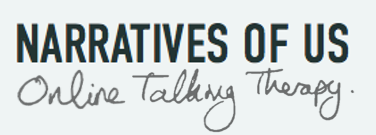A social-constructionist stance to supervision
I have trained in supervision styles from post-structural / social-constructionist epistemological positions, namely Narrative Therapy Supervision training from Amanda Redstone and Mark Hayward and Systemic Supervision from Isabelle Ekdawi. This supervision style may be a little different than the taken-for granted ways of providing clinical supervision, and as such may offer a different kind of conversation for subjugated stories rich with skills and knowledge and ways of listening to emerge.
Timeanddesire
Nam June Paik
Some of of my principles when providing a supervison space in this way are:
• The person is not the problem
• Decentred yet influential practice
• Opening space for the telling of people’s experience
• Taking a position that is curious and not knowing in relation to the lives and problems of people
• Open-ness
• Identifying and rich description of preferred identity claims from a relational identity perspective
• Deconstruction of taken for granted truths and attending to wider discourse
• Linking lives and rich population of stories
Some other ideas I draw on with supervisees:
If we are working regularly I may guide you to complete a ‘supervisory genogram’, as inspired by Jamie Aten and Michel Madson (2008) to help place yourself in the story of your supervisory journey to date in a visual way to aid reflections on contexts, relationships and discourses.
We may think about 'which GRACIES grab you' in order to reflect on what contexts you are acting out of and into.
We may draw out "positioning compasses’ to remember how to 'go on' in sessions - drawing on the work of Karen Partridge.
For supervision on work on the level of teams/consultation, I am experienced we may use The Collaborative Helping Map to shift individualism towards collective action.
I hold space to helps supervisee's shift from attending only to their own sense-making to the sense-making their client is making.
I think about how I can use narrative ideas ‘in building upon preferred stories of being a therapist’ (Gershoni and Cramer, INJNTCW 2002 no. 4).
We may draw on the work of Vikki Reynolds work on building a Solidarity Team for your practice or thinking about The Zone of Fabulousness in your work.
Noticing which domain we are in: Domains of Action, Production and Explanation: and shifting between these aesthetically.
We may lean on a useful meta framework to ensure high-quality relational reflexivity: Barry Masons Approach Method Technique (AMT) framework can help ensure epistemological and theoretical rigour, especially when integrating ideas from different ontological domains, and this can help to avoid uncritical eclecticism.
We may not know where we end up, but we will know which way we are heading! If you are interested in supervision about a person or family you are working with, please do get in touch!
Supervision Session
1 hour Individual 1:1 Online Clinical Supervision Space
🎚️ Sliding Scale: £130 to £150 per session







